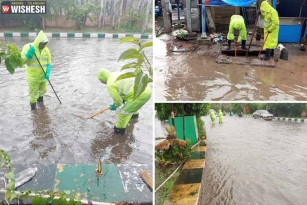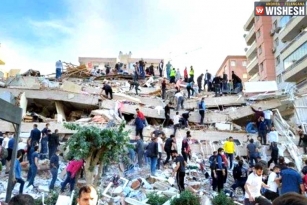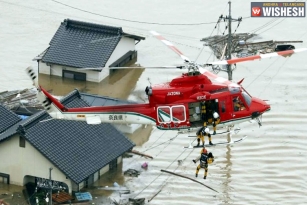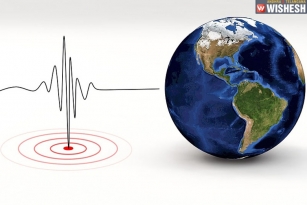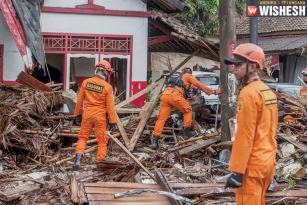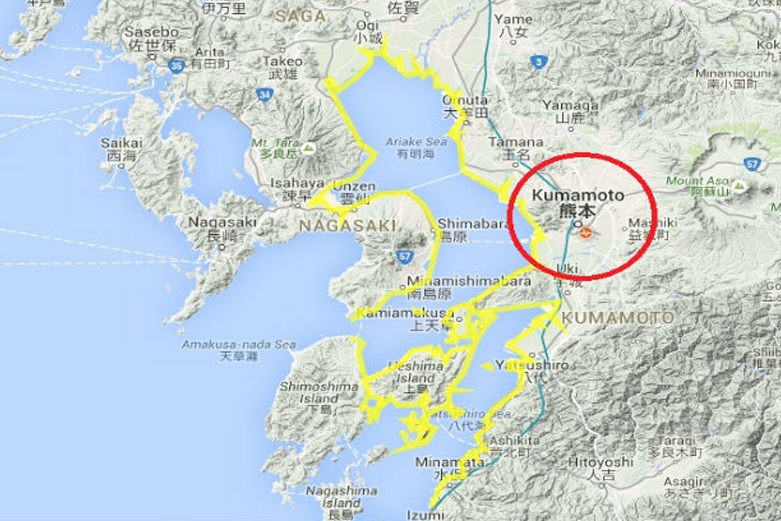
A powerful earthquake jolted northern Japan on Tuesday, briefly damaging the cooling functions at a nuclear plant. This caused a tsunami that hit the same region destroyed by a massive quake, tsunami and nuclear disaster in 2011.
"The earthquake, which was felt in Tokyo, had a magnitude of 7.4," the Japan Meteorological Service said, and was centred off the coast of Fukushima area at a depth of about 10 km (6 miles).
No reports of deaths or serious injuries were reported for several hours after the quake which hit at 5:59am (20:59 GMT Monday).
"A tsunami of up to 1.4 metres (4.5 feet) had been observed around Sendai, about 70 km (45 miles) north of Fukushima, with smaller waves hitting ports elsewhere along the coast," public broadcaster NHK said.
A Television footage showed ships going out to sea from harbours as tsunami alert signals wept, after predictions of waves of up to 3 metres (10 feet) were announced.
"We saw high waves but nothing that went over the tidal barriers," a man in the city of Iwaki told NTV television network.
The Pacific Tsunami Warning Center in Hawaii said: "the tsunami threat had now largely passed."
"Sea level fluctuations may continue along some coasts of Japan over the next few hours," it said.
The US Geological Survey calculated Tuesday's quake at magnitude 6.9, down from an original 7.3.
All Japan's nuclear power plants on the coast surrounded by the tsunami are shut down in the furrow of the March 2011 disaster, which knocked out Tokyo Electric Power Co's Fukushima Daiichi nuclear plant, spilling radiation into the air and sea.
A spokeswoman for Tokyo Electric Power, known as Tepco, said "the cooling system for a storage pool for spent nuclear fuel at the reactor at its Fukushima Daini Plant had been halted. A spokesman said the cooling system had restarted soon after."
"No another damage from the quake has been confirmed at any of its power plants, although there have been blackouts in some areas," the spokeswoman said.
Presently only two reactors are working in Japan, that also both in the south-west. Even when in closing, nuclear plants require cooling systems running to keep the spent fuel cool.
Tohoku Electric Power Co said, "there was no damage to its Onagawa nuclear plant, while the Kyodo news agency reported there were no irregularities at the Tokai Daini nuclear plant in Ibaraki prefecture."
One woman suffered cuts to her head from falling dishes, Kyodo news agency reported, "citing fire department officials. Japanese Minister for Disaster Management Jun Matsumoto told reporters about three hours after the quake that there had been no reports of significant injuries so far."
NHK showed footage of residents of Ishinomaki, standing on a hill wearing hats and heavy coats and looking down at the ocean. Several thousand people near the coast were vacated or were told to evacuate.
Nissan Motor Co said "would suspend work at its engine factory in Fukushima at least until the latest tsunami warning was lifted. A spokesman said there was no injuries or damage at the plant, which was badly damaged in the 2011 disaster."
Separately, Toyota Motor Corp said, "all factories in northeastern Japan were operating as usual."
An Iwaki city fire department official said "there was smoke or fire at Kureha's research centre in a petrochemical complex in Iwaki city at 6:17 a.m. (2117 GMT Monday) but it was extinguished soon after. Other details were not clear, he said, but no other major damage had been reported in the city so far."
Japan's famous Shinkansen bullet trains were stopped along one time of track and some other train lines were also halted.
Also Read: Japan stabbing 19 killed 25 injured
BY M. DIVYA SRI













